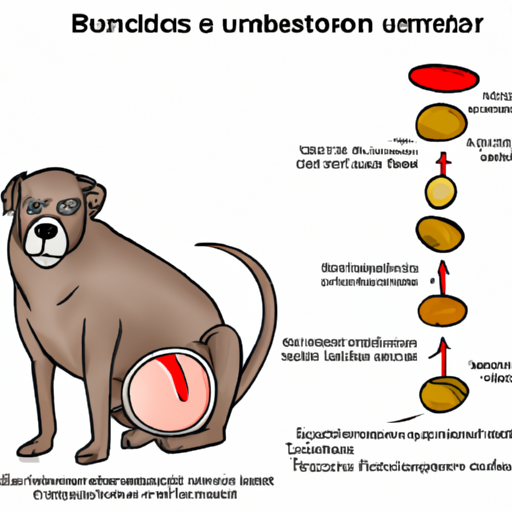As caregivers for our four-legged friends, it’s important to understand the various health conditions that can impact them. One such condition is bladder stones. In this article, we’ll explore the major causes of bladder stones in dogs and how you can help your pet avoid or manage this condition.
1. What are Bladder Stones?
Bladder stones, also known as urinary or uroliths, are hard, rock-like formations that develop in a dog’s bladder. They can vary in size from smaller than a grain of sand to as large as a golf ball. Bladder stones can cause discomfort and potential health complications for your furry friend.
2. Causes of Bladder Stones in Dogs
Bladder stones in dogs form when there is a high concentration of certain minerals in their urine. Let’s delve deeper into some of the key factors that can contribute to the formation of bladder stones:
-
Diet: A dog’s diet plays a significant role in bladder stone formation. Diets high in protein, phosphorous, and magnesium, and low in water content can promote stone formation.
-
Urinary Tract Infections: Chronic urinary tract infections can alter the pH of the urine, creating an environment conducive to the formation of bladder stones.
-
Genetic Predisposition: Some breeds, such as Dalmatians, Bulldogs, and Yorkshire Terriers, have a genetic predisposition to bladder stone formation.
-
Dehydration: Insufficient water intake can lead to concentrated urine, increasing the likelihood of bladder stone formation.
3. Symptoms of Bladder Stones in Dogs
Recognizing the symptoms of bladder stones can help you catch the issue early and seek appropriate veterinary care. Some common symptoms include:
- Frequent urination
- Pain or discomfort during urination
- Blood in the urine
4. Treatment and Prevention
Treatment for bladder stones varies depending on the size and type of the stones. Smaller stones may pass naturally, while larger stones may require surgical removal. Changes in diet and increased hydration can help prevent recurrence.
| Treatment Method | Description |
|---|---|
| Dietary Changes | Special diets can help dissolve some types of stones |
| Increased Hydration | Providing plenty of fresh water can help dilute the urine |
| Medication | Certain medications can help dissolve stones |
| Surgery | In severe cases, surgery may be needed to remove the stones |
5. Frequently Asked Questions (FAQs)
Q: Are certain dog breeds more prone to bladder stones?
A: Yes, some breeds such as Dalmatians, Bulldogs, and Yorkshire Terriers are more prone.
Q: Can diet prevent bladder stones in dogs?
A: A balanced diet and plenty of water can help reduce the risk.
Q: Can bladder stones in dogs be dissolved naturally?
A: Some stones may dissolve with dietary changes and medication, but others may require surgical removal.
Q: Are bladder stones in dogs life-threatening?
A: If untreated, bladder stones can lead to serious complications. Regular vet check-ups can help detect and treat them early.
Remember, as caregivers, the health of our pets is in our hands. Understanding the causes, symptoms, treatment, and prevention of bladder stones can help ensure our dogs lead long, healthy, and happy lives.



